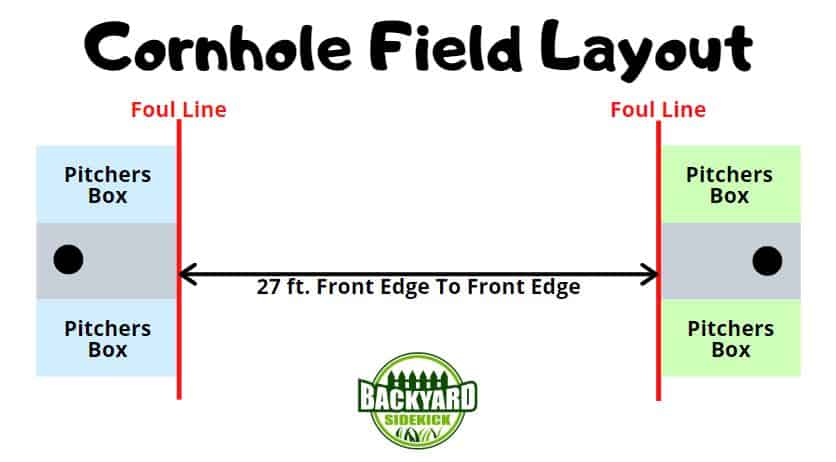Once you’ve received a job offer, it’s important to accept it formally in a professional way. This shows the employer that you are serious about the opportunity and that you are excited to join their team.
There are a few different ways to accept a job offer, but the most common is to send a written letter or email. You can also accept the offer verbally, but it’s always a good idea to follow up with a written confirmation.
Does Knowing How To Accept a Job Offer Really Matter?
Yes, knowing how to accept a job offer really matters. It is a professional courtesy and an opportunity to make a good impression on your new employer. It is also a chance to confirm the details of the offer and ask any remaining questions you may have.
Here are some of the reasons why it is important to know how to accept a job offer:
To be professional: Accepting a job offer in a professional manner shows that you are serious about the position and the company. It also shows that you are respectful of the time and effort that the employer has put into the hiring process.
To make a good impression: Your acceptance of a job offer is often the last communication you will have with your new employer before starting your new job. It is an opportunity to leave a positive impression and start your new role on the right foot.
To confirm the details of the offer: When you accept a job offer, it is important to confirm the details of the offer, such as the job title, salary, benefits, and start date. This will help to avoid any misunderstandings down the road.
To ask any remaining questions: If you have any remaining questions about the job offer, such as about the company culture, training opportunities, or career advancement prospects, you can ask them when you accept the offer. This will help you to make sure that you are making the right decision for your career.
What Should I Say When I Accept an Offer?
When you accept a job offer, it is important to be professional and enthusiastic. You want to thank the hiring manager for the opportunity and express your excitement about joining the company. You should also confirm the terms of the offer, including your start date, salary, and benefits.
Here is an example of what you could say when accepting a job offer:
Dear [Hiring Manager Name],
I am writing to express my sincere gratitude for your offer of the position of [Job Title] at [Company Name]. I am thrilled to accept your offer, and I look forward to joining your team.
I have reviewed the offer letter, and I am happy to confirm my acceptance of the following terms:
Start date: [Start Date]
Salary: [Salary]
Benefits: [Benefits]
Please let me know if there is any additional information or paperwork that you need from me prior to my start date.
Thank you again for this opportunity. I am eager to begin my new career at [Company Name].
Sincerely,
[Your Name]You can also add a personal touch to your acceptance email by mentioning something specific about the company or the role that you are excited about. For example, you could say:
I am particularly excited about the opportunity to work on [specific project or initiative].
I am drawn to [Company Name]’s mission and values, and I am eager to contribute to your team’s success.
I am confident that my skills and experience will be a valuable asset to [Company Name], and I look forward to working with you and the rest of the team to achieve your goals.
No matter what you say, be sure to be sincere and professional. Your job acceptance email is a great opportunity to make a good first impression on your new employer.
What to do before Accepting the Job Offer
Before accepting a job offer, it is important to carefully consider all of the factors involved. This includes the salary, benefits, work environment, and your overall career goals. Here are some things to do before accepting a job offer:
Research the company. What is the company’s reputation? What is their financial health? What is their company culture like? You can find information about the company online, or talk to people who work there or have worked there in the past.
Evaluate the compensation package. Is the salary fair for your experience and qualifications? What benefits are offered? Are there any other perks or bonuses? You can use online salary calculators to compare the offer to other similar jobs in your area.
Consider the job duties and responsibilities. Are the duties and responsibilities a good fit for your skills and interests? Are there any opportunities for advancement? Will you have the resources and support you need to be successful?
Think about the work environment. Will you be working in a team setting or independently? What is the office culture like? What are the hours like? Is there a good work-life balance?
Talk to your family and friends. Get their input on the job offer and whether they think it is a good fit for you.
If you have any questions or concerns about the job offer, be sure to ask the hiring manager before you accept. It is also important to have a clear understanding of the terms of the offer, such as the start date, salary, and benefits.
Here are some additional tips for accepting a job offer:
Don’t feel pressured to accept the offer right away. Ask for some time to consider the offer and talk to your family and friends.
If you have multiple job offers, compare them carefully before making a decision. Consider all of the factors involved, such as salary, benefits, work environment, and career goals.
If you are not happy with the offer, you can try to negotiate. This could involve asking for a higher salary, more benefits, or a different start date.
Once you have made a decision, be sure to send a formal acceptance letter to the hiring manager. In your letter, express your excitement about the job and reiterate the terms of the offer.
How to Officially Accept a Job Offer in a Professional Way
To officially accept a job offer in a professional way, you should:
Respond promptly. Aim to respond to the job offer within 24-48 hours of receiving it. This shows that you are excited about the opportunity and that you are serious about the job.
Send a written response. A written response is more formal and professional than a verbal response. You can send an email or a letter, depending on the company’s preference.
Express your gratitude. Thank the hiring manager for the job offer and express your excitement about joining the company.
Officially accept the offer. Clearly state that you are accepting the job offer and that you are looking forward to starting your new role.
Confirm the details of the offer. Restate the job title, salary, benefits, and start date to ensure that everyone is on the same page.
Ask any outstanding questions. If you have any remaining questions about the job or the offer, now is the time to ask them.
Proofread your response. Before you send your response, be sure to proofread it carefully for any errors in grammar or spelling.
What to do after Accepting the Job Offer
Here are some things to do after accepting a job offer:
Write a thank-you email. This is a professional courtesy and a way to express your excitement about the opportunity. Be sure to restate the terms of the offer, including your start date, salary, and title. Thank the hiring manager for their time and consideration, and let them know that you look forward to starting your new role.
Give notice to your current employer. It is customary to give two weeks’ notice, but you may want to give more or less depending on your relationship with your current employer and the company’s policies. When you give notice, be professional and courteous, and express your gratitude for the opportunity to have worked there.
Tie up loose ends at your current job. This includes completing any outstanding projects, delegating tasks to your colleagues, and transitioning your responsibilities to your replacement. You may also want to write a farewell email to your colleagues and manager.
Update your resume and LinkedIn profile. Remove your current job from your resume and LinkedIn profile, and add your new job offer. Be sure to update your title, start date, and company information.
Start researching your new company and role. Learn as much as you can about the company’s culture, mission, and values. Read up on your new role and its responsibilities. This will help you feel more prepared and confident when you start your new job.
Reach out to your new manager. Send your new manager a quick email to introduce yourself and reiterate your excitement about starting the job. You can also ask them if there is anything you need to do to prepare for your start date.
Negotiate your start date. If you need more or less time to give notice at your current job, or if you have other commitments, don’t be afraid to negotiate your start date with your new employer.
Ask about any pre-employment paperwork. Some employers may require you to complete pre-employment paperwork, such as a background check or drug test. Be sure to ask your new employer about any paperwork you need to complete before your start date.
Take some time to celebrate! You’ve just landed a new job, so take some time to relax and enjoy the accomplishment.
How to accept a job offer through email
To accept a job offer through email, you should follow these steps:
Write a clear and concise subject line. Your subject line should indicate that you are accepting the job offer, such as “Accepting Job Offer for [Position] at [Company Name]” or “Job Offer Acceptance – [Your Name].”
Start your email by thanking the hiring manager or recruiter for the offer. Express your excitement about the opportunity and reiterate your interest in the position.
State that you accept the job offer. Be clear and direct in your acceptance, and avoid using any language that could be interpreted as conditional.
Confirm your starting date and other important details. If you and the hiring manager have already discussed your starting date, salary, and benefits, you can simply confirm those details in your email. If there are any outstanding items, you can mention them in your email and ask for clarification.
End your email on a positive note. Thank the hiring manager or recruiter again for the opportunity, and express your eagerness to get started in your new role.
Once you have sent your job offer acceptance email, be sure to follow up with the hiring manager or recruiter to confirm next steps. This may include signing an employment contract, completing any necessary paperwork, or scheduling a start date.
How Do You Politely Decline a Job Offer?
To politely decline a job offer, you should:
Thank the hiring manager for the offer and their time. Express your sincere gratitude for the opportunity to learn more about the role and the company.
Be honest and clear about your reason for declining. You don’t need to go into too much detail, but it’s helpful to provide a brief explanation, such as:
You have accepted another offer that is a better fit for your career goals or aspirations.
You have decided to stay in your current role.
You have received an offer that offers a better salary or benefits package.
You have other personal or professional commitments that prevent you from accepting the offer.
Be polite and professional. Even though you are declining the offer, it’s important to remain respectful and courteous. Avoid making negative comments about the role, the company, or the hiring process.
Wish the hiring manager and the company the best of luck. End your response on a positive note by expressing your hope for their continued success.
Here is an example of a polite email declining a job offer:
Dear [Hiring Manager Name],
I am writing to thank you for offering me the position of [Job Title] at [Company Name]. I am honored to have been considered, and I appreciate the time and effort you and your team put into the interview process.
After careful consideration, I have decided to decline your offer. [Provide a brief explanation of your reason for declining, if desired.]
I wish you and [Company Name] all the best in your search for a qualified candidate.
Sincerely,
[Your Name]It is also important to respond to a job offer promptly. Employers need to move on with the hiring process, so it is best to let them know of your decision as soon as possible.
Job Offer Acceptance Templates
- Job offer acceptance email
Dear [Hiring manager’s name],
I am writing to formally accept your offer for the position of [Job title] at [Company name]. I am very excited to join the team and contribute to your company’s success.
As we discussed, my starting salary will be [Salary per year] with [Number of days] annual leave, and [List of other benefits]. My start date will be [Start date].
Please let me know if there is any additional information or paperwork you need from me before then.
Thank you again for the opportunity. I look forward to working with you and the rest of the team soon.
Sincerely,
[Your name]- Job Offer Acceptance Letter
Dear [Hiring manager’s name],
I am writing to formally accept your offer for the position of [Job title] at [Company name]. I am very grateful for the opportunity to join your team and contribute to your company’s success.
I have reviewed and agree to the terms of employment as set out in your offer letter, including a starting salary of [Salary per year], [Number of days] annual leave, and [List of other benefits]. My start date will be [Start date].
Please let me know if there is any additional information or paperwork you need from me before then.
Thank you again for the opportunity. I look forward to working with you and the rest of the team soon.
Sincerely,
[Your name]Conclusion
Accepting a job offer is an exciting time, and it’s important to do it in a professional way. It is a big decision, but it doesn’t have to be overwhelming. By carefully considering all of the factors involved and following the steps above, you can show the employer that you are serious about the opportunity and that you are excited to join their team.






